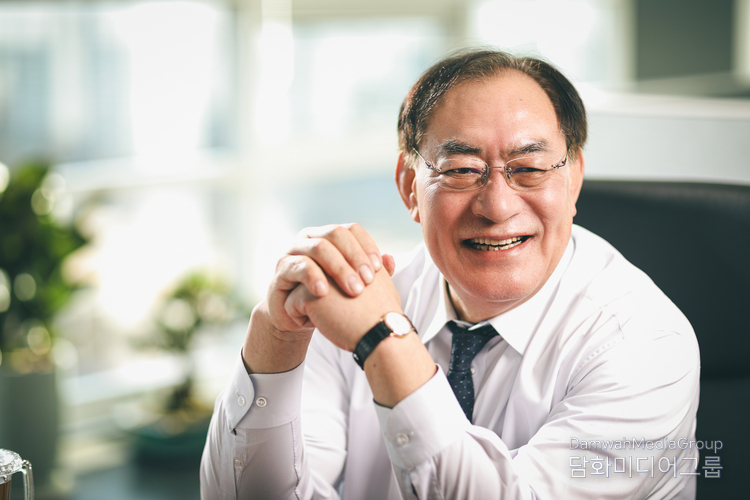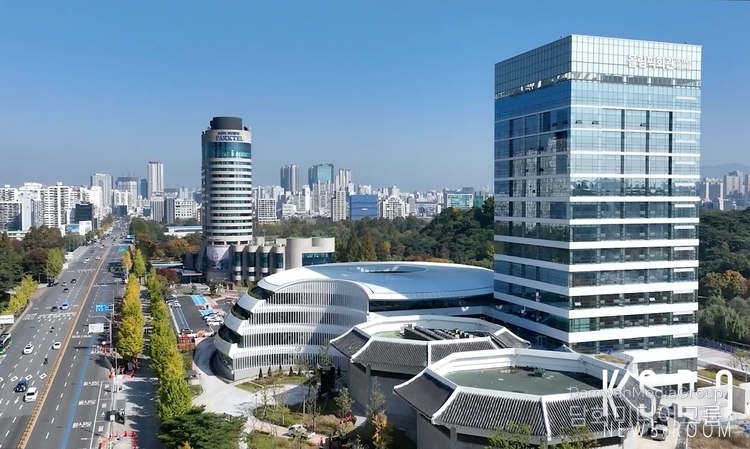By Diplomacy Journal Kayla Lee
In the 1984 Los Angeles Olympics, a South Korean man fearlessly defeated Japan, the world's strongest team, and won a gold medal in judo, raising the flag of hope for South Korea.
He was Ha Hyung-joo, known as the “Star of the Nation.” At the end of last year, he was selected as a South Korean sports hero and inducted into the Hall of Fame, demonstrating the significant impact he has had on South Korean sports.

His victory was not simply about winning a medal. It was a spark that boosted the morale of the Korean people and a symbol of national joy that turned around the depressed social atmosphere.
Now, decades later, Ha Hyung-joo serves as chairman of the Korea Sports Promotion Foundation (KSPO), taking on the historic responsibility of connecting the past and future of South Korean sports.
Even after retiring from his athletic career, Ha Hyung-joo did not remain merely a legend. As a professor in the Department of Physical Education at Dong-A University, he was deeply involved in securing the 2002 Busan Asian Games, achieving the first-ever participation of a North Korean delegation in the Asian Games.
The scene where he stood alongside North Korea's judo hero Gye Sun-hee as the final torchbearer at the opening ceremony moved the hearts of all Koreans. After serving as the permanent auditor of the Seoul Olympic Memorial Korea Sports Promotion Foundation, he gained extensive experience in sports administration and education in South Korea and was finally appointed as the chairman of the Seoul Olympic Memorial Korea Sports Promotion Foundation, the representative sports administration agency of South Korea.

“It is time to spread the noble spirit and values of the Seoul Olympics beyond South Korea to the world.”
Chairman Ha is working to create a fair and sustainable sports ecosystem by expanding grassroots sports, strengthening the physical fitness of youth and teenagers, and supporting retired athletes in their second careers.
In addition, with the 2028 Los Angeles Olympics approaching, he is preparing for the rebirth of Korean sports by providing generous support to the national team through the National Sports Promotion Fund.
As a living witness to the 1988 Seoul Olympics and a gold medalist who embodied the Olympic spirit, he emphasizes that the legacy of the Seoul Olympics should not remain merely a memory.
He stressed, “The 1988 Seoul Olympics is an asset that should be exported. Its noble spirit, technology, and operational know-how still possess global competitiveness today.”
Since 2013, the Seoul Olympic Memorial Korea Sports Promotion Foundation has been supporting 221 sports administrators from 62 developing countries in obtaining master's degrees, thereby building a friendly international network.
In addition, Chairman Ha is directly designing a “sports ODA strategy” to transfer Korean-style sports policies, stadium infrastructure, and operational systems. Through this initiative, sports will be used as a language of diplomacy to disseminate Korea's sports expertise to the world, expected to create greater synergy effects alongside existing projects.
It is insufficient to describe Chairman Ha Hyung-joo simply as a sports administrator. He is a sports education expert and practitioner who has served as a professor at Dong-A University for 38 years and has lectured as a sports professor in the United States and Japan, combining academia and practical experience.
As part of the “Seoul Olympic Legacy Forum” held last October, the Seoul Olympic Memorial Korea Sports Promotion Foundation laid the groundwork for sports diplomacy by promoting the “Global Sports ESG Declaration” with the participation of 17 domestic and international mega sports legacy management entities, including the Olympic Council of Asia (OCA), the Asian Paralympic Committee (APC), the Seoul Metropolitan Government, and the 2027 Chungcheong Summer University Games Organizing Committee.
Following last year's event, Chairman Ha is planning to invite ambassadors from more than 30 countries to the ‘Seoul Olympic Legacy Forum’ in the second half of this year to share information on the design of the 1988 Seoul Olympic venues, sports administration, and infrastructure operation systems. If realized, the forum is expected to be a symbolic event that opens a new door for K-sports diplomacy, going beyond a simple social gathering.
The sports diplomacy envisioned by Chairman Ha goes beyond simple international exchange. Stadium design, operational technology, and policy manuals can be converted into exportable content, which has a complex ripple effect not only on the sports industry but also on tourism, education, and the cultural industry.
“Sports is a language connecting people and transcending borders. South Korea's sports are diplomacy and a future asset.”
Ha Hyung-joo. He is not only a sports hero who brought hope to the Korean people with his gold medal, but also a leader who dreams of taking South Korean sports to the world. His steps are still strong and steady. The future of South Korean sports is being rewritten by his hands.







